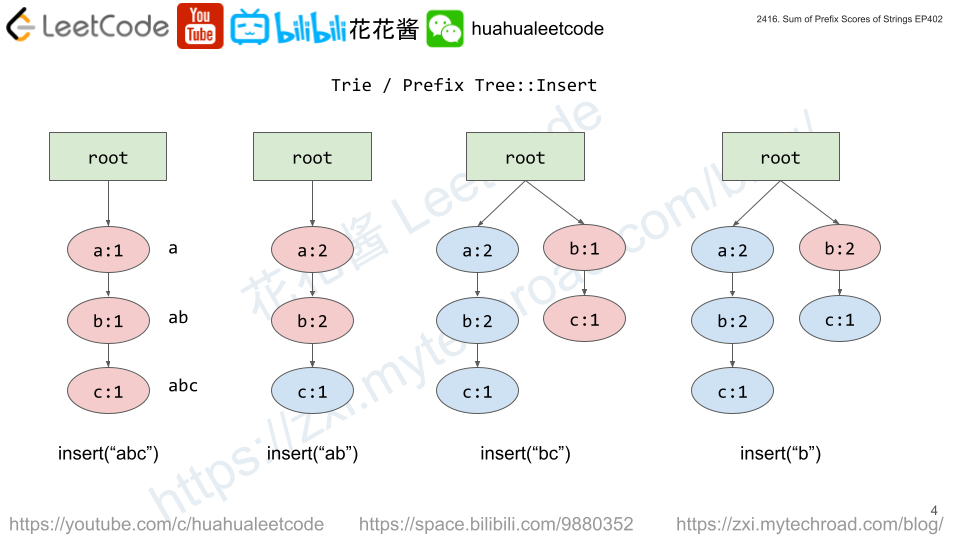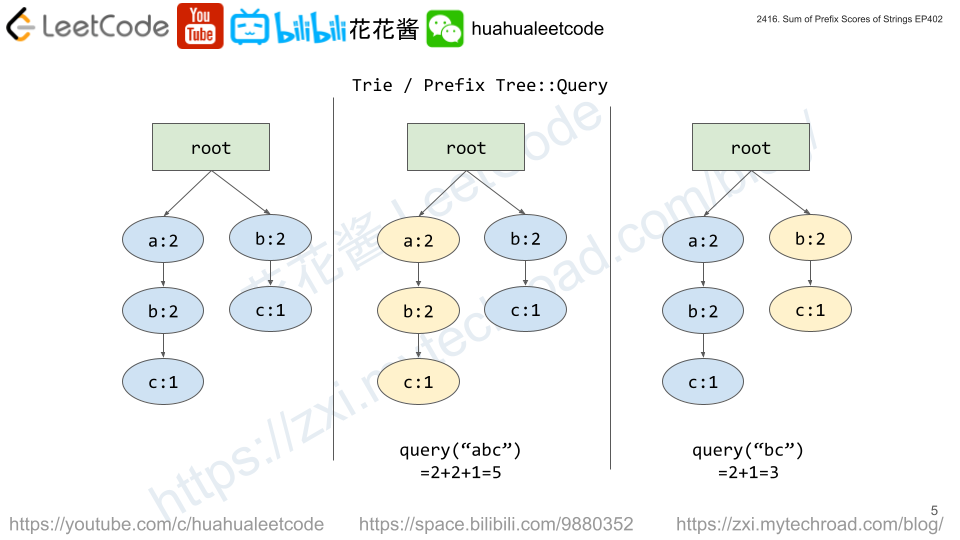You are given two 0-indexed integer permutations A and B of length n.
A prefix common array of A and B is an array C such that C[i] is equal to the count of numbers that are present at or before the index i in both A and B.
Return the prefix common array of A and B.
A sequence of n integers is called a permutation if it contains all integers from 1 to n exactly once.
Example 1:
Input: A = [1,3,2,4], B = [3,1,2,4]
Output: [0,2,3,4]
Explanation: At i = 0: no number is common, so C[0] = 0.
At i = 1: 1 and 3 are common in A and B, so C[1] = 2.
At i = 2: 1, 2, and 3 are common in A and B, so C[2] = 3.
At i = 3: 1, 2, 3, and 4 are common in A and B, so C[3] = 4.
Example 2:
Input: A = [2,3,1], B = [3,1,2]
Output: [0,1,3]
Explanation: At i = 0: no number is common, so C[0] = 0.
At i = 1: only 3 is common in A and B, so C[1] = 1.
At i = 2: 1, 2, and 3 are common in A and B, so C[2] = 3.
Constraints:
1 <= A.length == B.length == n <= 501 <= A[i], B[i] <= nIt is guaranteed that A and B are both a permutation of n integers.
Solution 1: Bitset
Use bitsets to store the numbers seen so far for each array, and use sA & sB to count the common elements.
Time complexity: O(n*50)
Space complexity: O(50)
C++
|
|
// Author: Huahua class Solution { public: vector<int> findThePrefixCommonArray(vector<int>& A, vector<int>& B) { bitset<51> sA; bitset<51> sB; vector<int> ans; for (int i = 0; i < A.size(); ++i) { sA.set(A[i]); sB.set(B[i]); ans.push_back((sA & sB).count()); } return ans; } }; |
Solution 2: Counter
Use a counter to track the frequency of each element, when the counter[x] == 2, we found a pair.
Time complexity: O(n)
Space complexity: O(n)
C++
|
|
// Author: Huahua class Solution { public: vector<int> findThePrefixCommonArray(vector<int>& A, vector<int>& B) { vector<int> count(A.size() + 1); vector<int> ans; for (int i = 0, s = 0; i < A.size(); ++i) { if (++count[A[i]] == 2) ++s; if (++count[B[i]] == 2) ++s; ans.push_back(s); } return ans; } }; |


